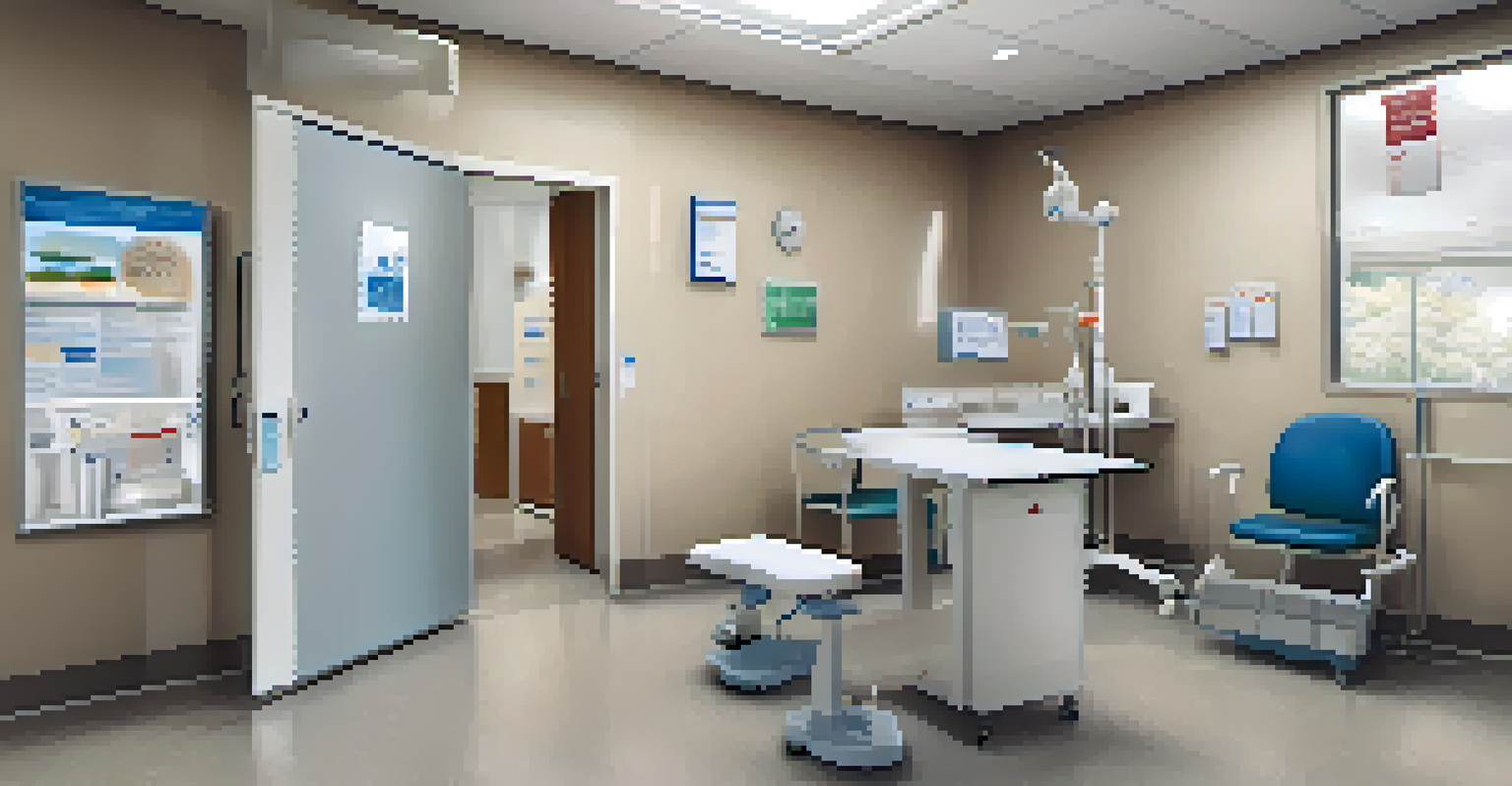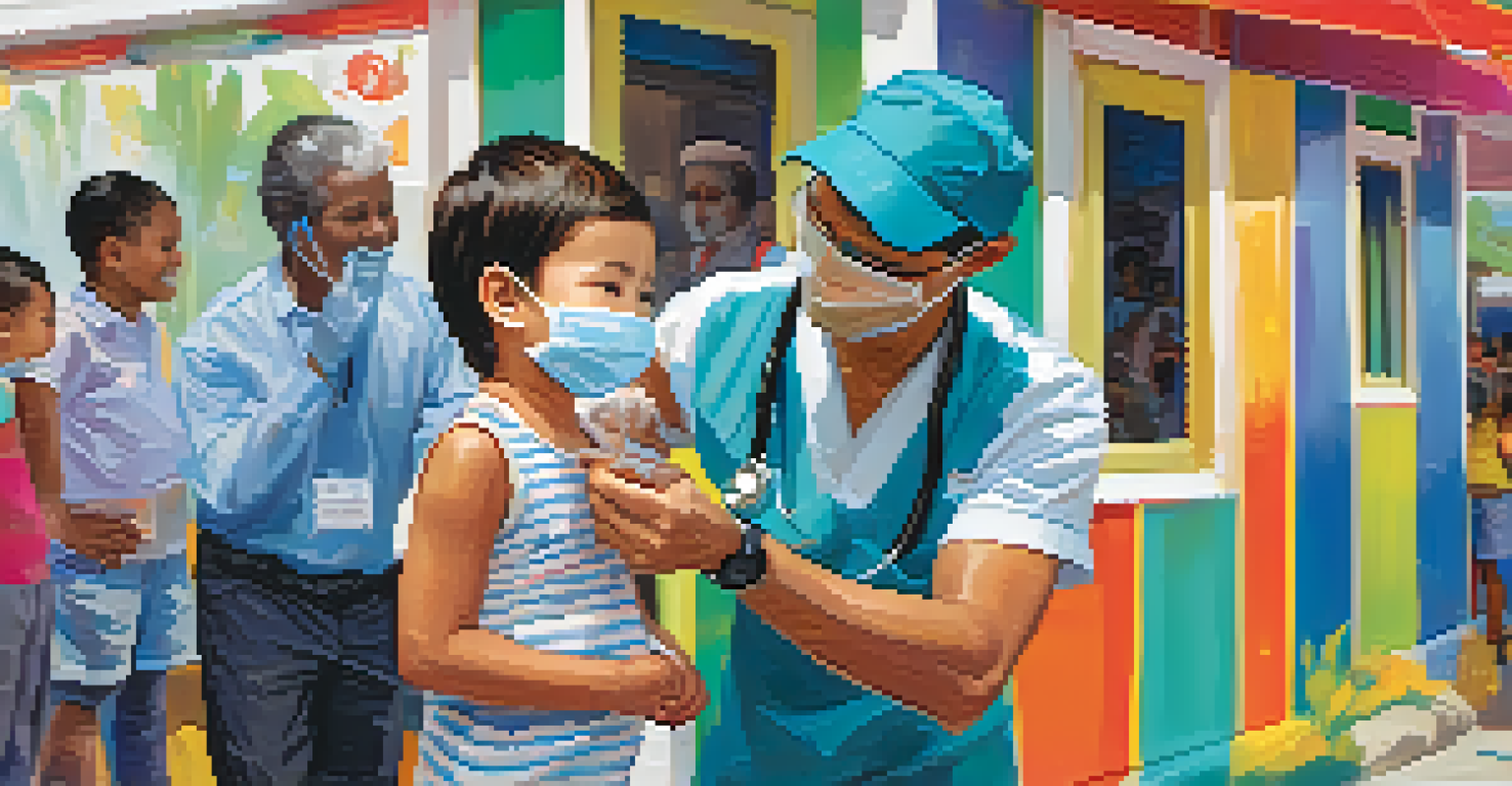Mobile Health Clinics: Expanding Access to Care Services

What Are Mobile Health Clinics and Their Purpose?
Mobile health clinics are innovative healthcare facilities on wheels that bring essential medical services directly to communities. They aim to bridge the gap in healthcare access, particularly in underserved or remote areas where traditional healthcare facilities might not be available. By providing services like screenings, vaccinations, and preventive care, these clinics help improve overall community health.
Health care is a right, not a privilege.
Think of them as a friendly neighborhood doctor’s office that travels to you, removing barriers such as transportation and long wait times. They often cater to diverse populations, including low-income families, the uninsured, and those living in rural areas. This accessibility ensures that everyone, regardless of their circumstances, has the opportunity to receive necessary medical attention.
Mobile health clinics also play a crucial role during public health emergencies, such as pandemics or natural disasters. They can quickly deploy to affected areas, offering immediate care and resources to those in need. By doing so, they not only promote health equity but also strengthen community resilience.
The Services Offered by Mobile Health Clinics
Mobile health clinics provide a wide range of services, from primary care to specialized health screenings. Common services include immunizations, blood pressure checks, diabetes management, and health education. Many clinics also offer mental health support, dental check-ups, and substance abuse counseling, addressing various aspects of well-being.

Imagine pulling up to a colorful, inviting vehicle where you can get your annual flu shot or a quick health check-up without the hassle of booking an appointment weeks in advance. This convenience encourages individuals to prioritize their health and seek care they might otherwise avoid due to time or logistical constraints. It’s all about meeting patients where they are, literally and figuratively.
Mobile Clinics Enhance Healthcare Access
Mobile health clinics provide essential services directly to underserved communities, improving healthcare access and outcomes.
Moreover, these clinics often collaborate with local organizations to provide additional resources, such as nutrition workshops or fitness programs. This holistic approach not only treats health issues but also empowers individuals to make healthier lifestyle choices that can prevent future complications.
Benefits of Mobile Health Clinics for Communities
The presence of mobile health clinics in communities brings numerous benefits, particularly in improving health outcomes. By increasing access to essential services, they can lead to early detection and treatment of health conditions, ultimately reducing hospitalizations and healthcare costs. This proactive approach fosters a healthier community overall.
The greatest wealth is health.
Additionally, these clinics often build trust within the communities they serve. When healthcare providers show up consistently and engage with residents, they create relationships that encourage individuals to seek care. This trust is especially vital in areas where people may have experienced barriers or discrimination in traditional healthcare settings.
Beyond individual health improvements, mobile health clinics can also enhance public health initiatives. They facilitate health education, raise awareness about prevalent issues, and promote preventive care, contributing to a more informed and health-conscious population.
Challenges Facing Mobile Health Clinics
While mobile health clinics offer vital services, they also face several challenges that can impact their effectiveness. One significant issue is funding; many clinics operate on grants and donations, which can fluctuate and create uncertainty. This financial instability can limit their ability to provide consistent services and may hinder expansion efforts.
Another challenge is the logistical aspect of running a mobile clinic. Scheduling routes, maintaining the vehicle, and ensuring that healthcare professionals are available can be complex. Additionally, reaching remote areas can pose difficulties, especially in inclement weather or during emergencies when access is further restricted.
Variety of Services Offered
These clinics offer a wide range of healthcare services, including immunizations, mental health support, and health education.
Lastly, there’s the ongoing need for community engagement and education. Some individuals may still be unaware of the services offered, or they may have misconceptions about mobile clinics. Addressing these concerns requires ongoing outreach and communication efforts to ensure that everyone knows the available resources.
Success Stories: Mobile Health Clinics in Action
Across the country, there are inspiring success stories of mobile health clinics making a difference in their communities. For instance, a mobile clinic in a rural area may have significantly increased vaccination rates among children by bringing services directly to schools and community centers. This targeted approach not only improves health but also fosters a sense of community involvement.
In urban settings, mobile clinics have been instrumental in addressing issues like homelessness and mental health. By providing a safe space for individuals to receive care, these clinics have helped many find pathways to stable housing and employment. The impact extends beyond health; it transforms lives and revitalizes communities.
These success stories underscore the importance of mobile health clinics as a vital component of the healthcare system. They demonstrate how innovative solutions can address longstanding health disparities and pave the way for a healthier future for all.
The Future of Mobile Health Clinics
Looking ahead, the future of mobile health clinics is promising, with potential for growth and innovation. As technology continues to advance, we may see the integration of telehealth services into mobile clinics, allowing for virtual consultations alongside in-person care. This hybrid model could enhance access and convenience for patients, meeting the demands of a rapidly changing healthcare landscape.
Additionally, as more communities recognize the value of mobile health clinics, we can expect increased support and funding from both public and private sectors. This support can lead to expanded services, more clinics on the road, and the ability to reach even more underserved populations.
Community Impact and Trust Building
By consistently engaging with communities, mobile health clinics foster trust and promote health equity, leading to better overall health outcomes.
Ultimately, the future of mobile health clinics lies in their adaptability and commitment to addressing the unique needs of each community they serve. By continuously evolving and responding to challenges, these clinics can remain a vital resource in promoting health equity and improving overall community health.
Getting Involved: Supporting Mobile Health Clinics
Individuals and organizations can play a crucial role in supporting mobile health clinics in their communities. One way to get involved is by volunteering time or resources, whether it's helping with outreach efforts, providing health education, or contributing supplies. Every little bit helps ensure that these clinics can continue to operate and reach those in need.
Moreover, spreading awareness about mobile health clinics is vital. Sharing information on social media, hosting community events, or even discussing it with friends and family can help ensure that more people know about the services available to them. The more informed a community is, the more likely individuals will take advantage of these vital healthcare resources.

Lastly, advocating for policies that support funding and resources for mobile health clinics is essential. Engaging with local representatives and encouraging them to prioritize healthcare access can lead to positive changes that benefit the entire community. Together, we can help pave the way for a healthier future, one mobile clinic at a time.